You have ten seconds. That’s it. Take any longer and they’re gone. It’s true of nearly anything now a days. If someone is going to read your blog, play your game or listen to your podcast.
People generally make some snap decisions based on what they can see to evaluate if something is worth their time. The decisions they make aren’t always logical ones either. For books and board games one of the things people subconsciously do is to weigh the book or box. They don’t even know they’re doing it. Board game makers will tell you, if they pick it up and the box feels too light, the person will decide that the game is not worth their money as if the bulk of a game defines how fun it will be. I’ve noticed people do this with books. A heavy book impresses people.
Online, people can’t weigh your blog but they still use some illogical measurements to evaluate it. For one, color is a big factor. While there is the readability factor, even when that isn’t an issue people will reject a site with a color scheme they don’t like. It’s like a person’s preference for color defines the merit of their writing.
What this means for GMs
Thankfully, if a person already plays RPGs, a lot of the work of grabbing their attention is in those three little letters R P and G. They know what you’re talking about and all you need to do is tack on a few more words “Star Wars”, “Mouseguard” or “The Artifact” (okay, not in the same league) to grab their attention. But what about someone who hasn’t played before? How do you grab their attention? I think this is one of the most difficult sales pitches out there. You have to deliver why RPGs are fun in ten seconds or they’re not sold.
Sometimes if someone hangs around for an hour (usually more) they start to pick up on the fun but getting that initial sales pitch right is viciously hard. Usually pictures are good for conveying larger amounts of information in short amounts of time. After all a picture is worth a thousand words (try saying a thousand words in ten seconds). This is exactly why board games have pictures on the box and books have pictures on the cover. They’re part of that ten second sales pitch. Flipping through a book with pictures can help but there’s a hang up. Hit a picture the person doesn’t like and you may loose the pitch. If they see one flaw that bothers them, you’ve lost them.
We’ve all heard the “It’s like being the people in the book/movie.” pitch. I don’t think I’ve ever had someone say “Ooh yeah, that sounds like fun!” to that pitch. Almost universally that pitch doesn’t work. Added to that, playing an RPG is a slow and often complex process. Explaining how to play as a sales pitch is guaranteed to confuse a potential player.
So what is to be done?
Be enthusiastic, not overly so, just enough that you convey that you enjoy playing. Knowing the person you’re introducing to Role Playing helps because you’ll know what they like but can also be a pitfall because they likely won’t link what they like with the game until they’ve played it.
Role Playing is a social game and is probably best explained that way. It’s a time to really enjoy being with your friends. Sure there are people that play with strangers but most of the time players are introduced by friends.
Role Playing is also a time to be creative. You have to be careful with that thought because a lot of people don’t think of themselves as creative and may mentally shut themselves out of being able to play.
RPGs are also a very deep rabbit hole and I think that people can sense that. They also seem to be afraid of doing it “wrong”, not realizing that most of us do it wrong in some sense or another. I think it’s important to reassure them that a big part of a successful game is when the players work together which makes everyone at the table want them to do well.
How would you explain it?
In the comments, give it a shot! See if you can explain role playing in a new and exciting way. It has to fit within 10 seconds! The answer that is judged to be the best will get a free copy of The Artifact RPG Economy (the B&W version) mailed to them!
Deadline is by Gen Con Indy. Multiple entries by the same person are allowed.
 I was going to do the Winning card next, but when I wrote it I found that I needed to introduce the GM card next. I’m a little bummed at that. I was hoping to have the cards independent of each other so they could just be handed around a table randomly. Next in the Basics series, the Game Master card.
I was going to do the Winning card next, but when I wrote it I found that I needed to introduce the GM card next. I’m a little bummed at that. I was hoping to have the cards independent of each other so they could just be handed around a table randomly. Next in the Basics series, the Game Master card.
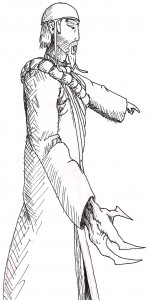
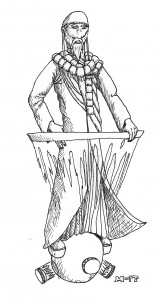
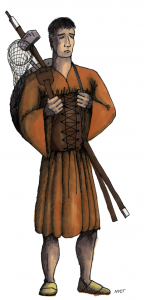

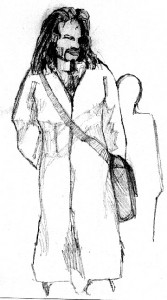
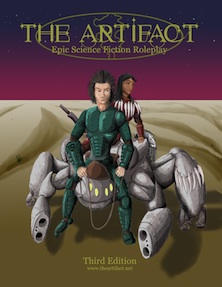
 The Free RPG Blog
The Free RPG Blog